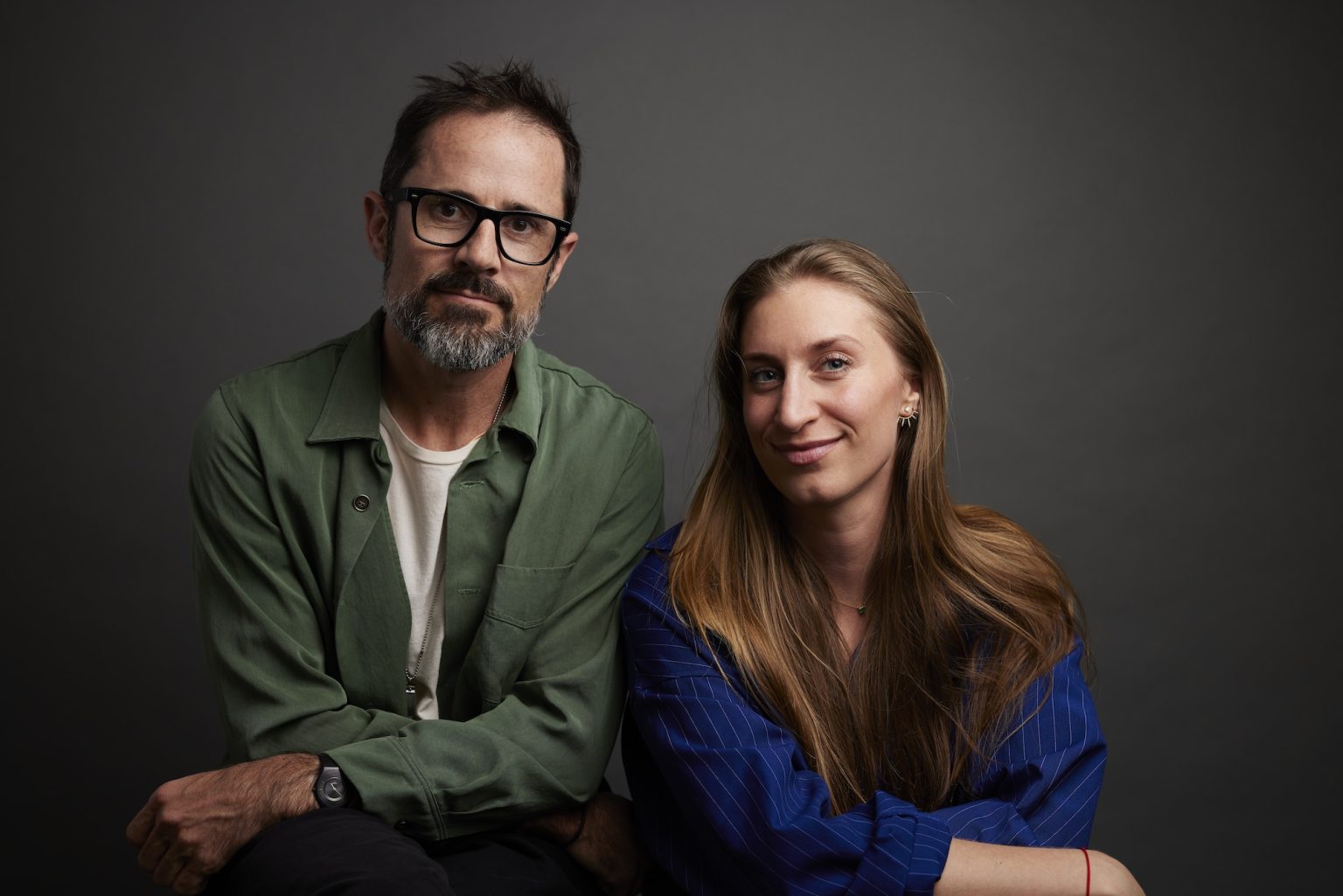Summarize this content to 2000 words in 6 paragraphs
Mozi co-founders Ev Williams, left, and Molly DeWolf Swenson. (Margo Moritz Photo)
Bucking the conventional wisdom around most new products, Molly DeWolf Swenson‘s goal with her new app is for people to not use her new app too much.
DeWolf Swenson is the CEO of Mozi, a startup she co-founded with Ev Williams, the co-founder and former CEO of Twitter who also founded Blogger and Medium. They raised a $6 million seed round in November.
Mozi’s focus is on strengthening in-person connections by removing the addictive “media” aspect of social media and returning to the roots of social networking.
“The goal is not to keep you on Mozi. The goal is for you to find what you were looking for and then get off your phone,” DeWolf Swenson told GeekWire. “And if we find people spending a ton of time on Mozi, we’re doing something wrong.”
A Seattle native, DeWolf Swenson is a Garfield High School graduate who studied at Harvard University and spent 10 years in Los Angeles co-founding media company RYOT and VC firm 3Rodeo. Her background even includes a White House internship and a mini-run as a contestant on the reality TV singing competition “American Idol.”
She’s returned to Seattle to run Mozi as a remote operation, hiring Hulu and Nike vet Duoc Nguyen as head of engineering. Nguyen previously worked on TraceMe, the startup co-founded by former Seattle Seahawks quarterback Russell Wilson.
DeWolf Swenson grew up in the era of AOL Instant Messenger and MySpace. By the time she got to Harvard, she couldn’t wait to use her Harvard.edu email address so she could get a Facebook account.
“Facebook was the place where my social network existed,” she said. “For a while, probably until a few years after college, it was the primary place where I was going to figure out what my friends were up to.”
When Facebook and others became social media platforms and modern broadcasters, DeWolf Swenson said it was no longer about what her friends were up to, but it became about how many clicks and views publishers and influencers could generate.
The desire to stay in touch with friends and, more importantly, to see friends more in real life, was the impetus for Mozi.
Visiting a city for work or vacation? Mozi lets you notify specific friends. (Mozi Images)
The app, currently on iOS, works by ingesting a user’s phone contacts. The user can then select which contacts to keep in Mozi, and which to designate as close friends. Users can also determine who gets to see specific updates or plans that they highlight on the app. And if they want to have a conversation with a friend, Mozi directs users away from the app to use a phone’s messaging app or another tool such as WhatsApp.
Picture traveling to another city where you have friends, and you want to let those friends know you’re in town, or that you’re attending a specific event.
DeWolf Swenson views it like using a health tracker such as Strava or Oura Ring, products used for a specific purpose — to track a fitness journey, or to see how well you slept — before you leave.
“You don’t need to spend a bunch of time on it,” she said. “You’re not doom scrolling on Oura Ring.”
In a post on Medium, Williams wrote about what made him want to build a new social app, and wh it would need to be private — “Non-performative. No public profiles. No public status competitions. No follower counts. No strangers.”
The free Mozi app has attracted 20,000 users so far and monetization will be through a freemium model. They’re already hearing from users who would be willing to pay for premium features in order to avoid ads.
The startup employs 12 people. Williams is based in San Francisco and there are team members in L.A., San Diego, New York, Medellin, Vienna, Dublin, London, and Madrid. DeWolf Swenson put herself in Seattle because as CEO it was the first time she’d gotten to make the call about where to be based.
She hopes to grow in the city.
“I love the idea of Mozi becoming so successful we need a Seattle office,” DeWolf Swenson said.


